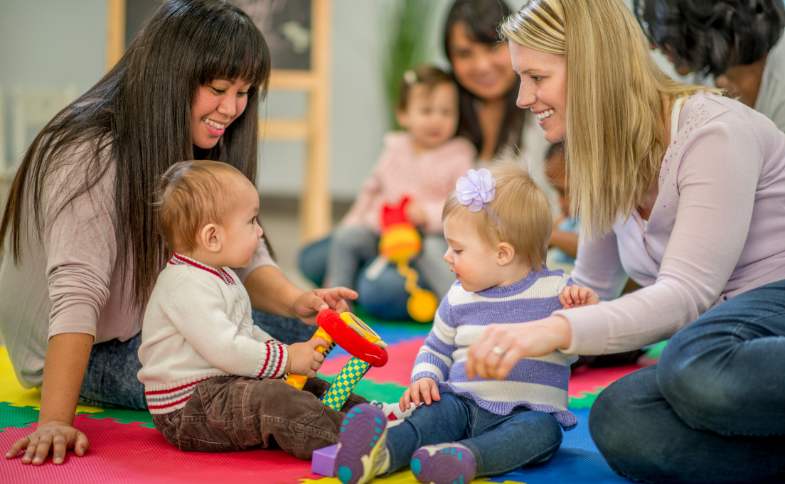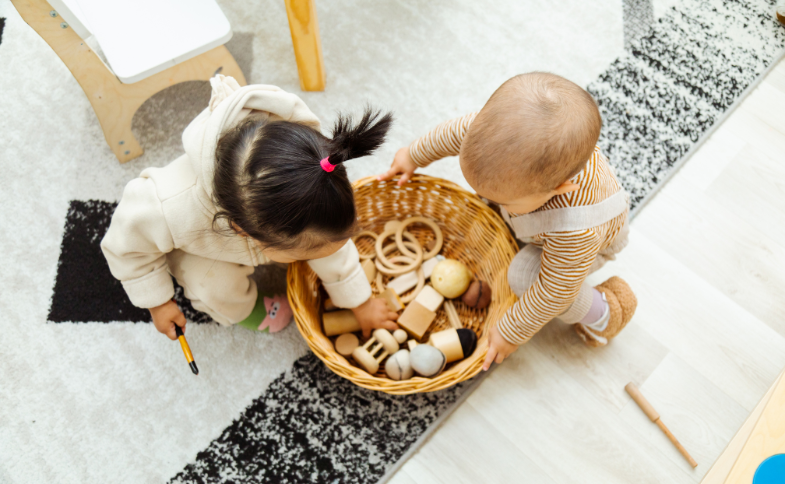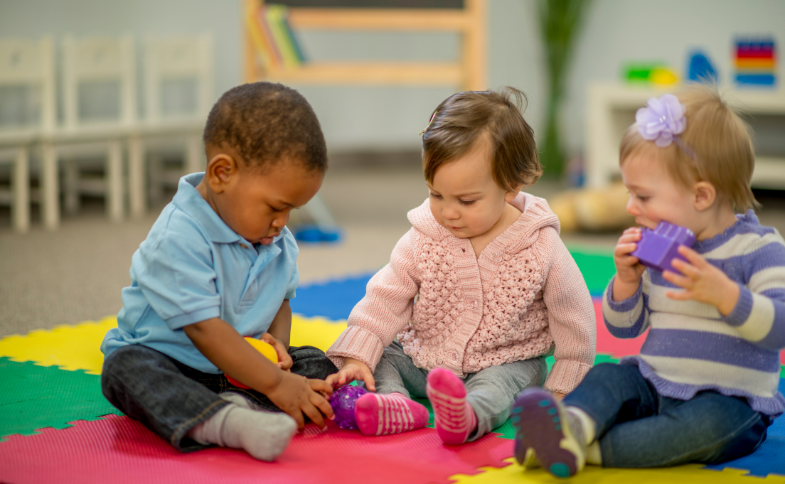How To Choose The Right Playgroup For Your Toddler’s Social Development
Choosing the right playgroup for your little one is a big deal. Playgroups play an essential role in helping toddlers foster their social development. They provide the perfect environment for toddlers to interact, learn, and develop basic skills.
That said, not all playgroups are the same. So how do you choose the right one for your child’s needs and personality? In this guide, we'll explore the key factors to consider when selecting a playgroup for your little one.
What is a playgroup?
A playgroup is basically a group of parents and children who meet regularly to play, socialize, and support each other. Playgroups can be formal or informal. They are most commonly organized by community centers, schools, churches, or parents themselves. Because of this, the playgroups you come across may vary in size, frequency, location, and activities.

Why Playgroups Matter
Playgroups play a pivotal role in a toddler's early years. They offer a structured yet fun environment for social interaction. These settings contribute significantly to a child's cognitive, emotional, and social development.
Benefits of Playgroup for Toddlers
- Language Development: Interaction with peers enhances language skills, as toddlers engage in conversations, listen to others, and expand their vocabulary.
- Emotional Growth: Playgroups provide a safe space for toddlers to express emotions, understand empathy, and develop resilience.
- Building friendships: They can help your toddler form positive relationships with peers, learn to share, cooperate, and communicate, and develop empathy and respect for others.
- Boosting confidence: They can help your toddler gain self-esteem, independence, and resilience.
- Enhancing learning: They stimulate your little one’s curiosity, boosting problem-solving skills.
- Supporting health: Playgroups can help your toddler improve their physical, mental, and emotional well-being because they get to exercise both their bodies and minds.
Choosing the Right Playgroup
There is no one-size-fits-all playgroup for every toddler. You need to consider your child’s interests as well as your own expectations, values, and availability.
1. Location and Accessibility
Consider a playgroup that is conveniently located. Accessibility is crucial for regular attendance and ensures that both you and your toddler feel comfortable getting there.
Therefore, you want to find a playgroup close to your home or workplace. This minimizes commute time and makes it easier to get your child there routinely. Also, make sure the schedule aligns with your availability. Playgroups may meet 1-2 times per week for 1-2 hours. Find one that fits your schedule.
2. Age-Appropriate Activities
Look for playgroups that offer age-appropriate activities. Toddlers have specific developmental needs, and playgroups that cater to these needs provide a more enriching experience. Go for playgroups that incorporate free play, storytime, music, arts and crafts. This provides diverse social opportunities. Plus, established routines give toddlers a sense of stability. So make sure the group has a good structure.

3. Qualified and Caring Staff
Ensure the playgroup is staffed with qualified and caring staff. Experienced teachers who understand toddler development can create a positive and nurturing environment.
4. Safety Measures
Safety should be a top priority. Check if the playgroup has proper safety measures in place, including childproofing, first aid knowledge among staff, and a secure environment. Issues like choking hazards and other safety issues should be addressed. Additionally, bathrooms and common areas should be clean. Toddlers tend to touch everything and are prone to illness, so you can’t compromise on this!
5. Class Size and Student-Teacher Ratio
Smaller class sizes and lower student-teacher ratios allow for more individualized attention, fostering a better learning environment for toddlers.
Studies show that small groups of 6-12 kids are best for toddlers. This prevents them from getting overstimulated. So go for a smaller group that is composed of kids of similar ages. Co-ed groups are also important as they help toddlers develop social skills with both genders. However, single-gender groups are okay too.
6. Daily Routine
A well-structured daily schedule with a balance of play, learning, and rest is essential. Consistent routines help toddlers feel secure and understand what to expect each day.
7. Parental Involvement Opportunities
Explore playgroups that encourage parental involvement. This can include regular updates, parent-teacher meetings, or opportunities to participate in special events.
8. Positive Reviews
Read reviews and seek recommendations from other parents. Positive feedback can give you insights into the playgroup's reputation and the experiences of other toddlers.

9. Trial Sessions
Many playgroups offer trial sessions. Take advantage of these opportunities to see how your toddler responds to the environment and interacts with other children.
10. Affordability and Value for Money
While cost is a factor, consider the overall value for money. A playgroup that offers a well-rounded developmental experience for your toddler may be worth a slightly higher investment.
How to prepare your toddler for the playgroup?
Once you have chosen a playgroup for your toddler, you need to help your child get ready for the new experience. Here are some tips to ease the transition:
- Visit the playgroup before joining: If possible, visit the playgroup with your toddler before you sign up, and observe how the group operates, how the children interact, and how the adults supervise.
- Talk to your little one about the playgroup: Explain to your toddler what a playgroup is, what they can expect, and what they can do there. Use enthusiastic language as you do so.
- Involve your toddler in the decision-making: Let your little one have some say in choosing the playgroup, and in preparing for the sessions. This will help them feel more excited about the playgroup.
- Start slowly and gradually: Don’t rush your little one into joining the playgroup. They likely won’t adapt immediately. Start with short and frequent visits, and stay with your toddler until they feel comfortable. Gradually increase the duration and frequency. Respect your kiddo’s pace and offer encouragement along the way.

How to make the most of the playgroup?
After your toddler has joined the playgroup, you need to support your child’s learning. Here are some tips to do this:
- Follow the playgroup rules: Respect the playgroup’s guidelines and help your toddler follow them as well. Arrive and leave on time and always follow the safety and hygiene protocols. If there are any planned activities, make a point to participate in them.
- Encourage your toddler to interact and explore: Your little one should feel free to join in the playgroup activities and interact with other kiddos. This will help your toddler develop their social and cognitive skills while having fun!
- Be attentive and responsive to your toddler’s needs and emotions. Offer support when needed. You can comfort your toddler if they are upset or help them resolve conflicts. This will help them feel safe in that environment.
- Communicate regularly with the playgroup organizer and other parents. Make sure to share your feedback as well as suggestions or any concerns that you may have. This will help you build a positive relationship with the playgroup. It will also improve the quality of the playgroup over time.
Final Thoughts
Choosing the right playgroup is a crucial step in supporting your toddler's social development. Take time to observe multiple playgroups if possible. Making the right choice goes a long way in giving your toddler positive early social experiences with peers. Don't hesitate to switch groups if the fit does not seem right. Remember to trust your instincts and observe how your toddler responds during trial sessions. Good luck!